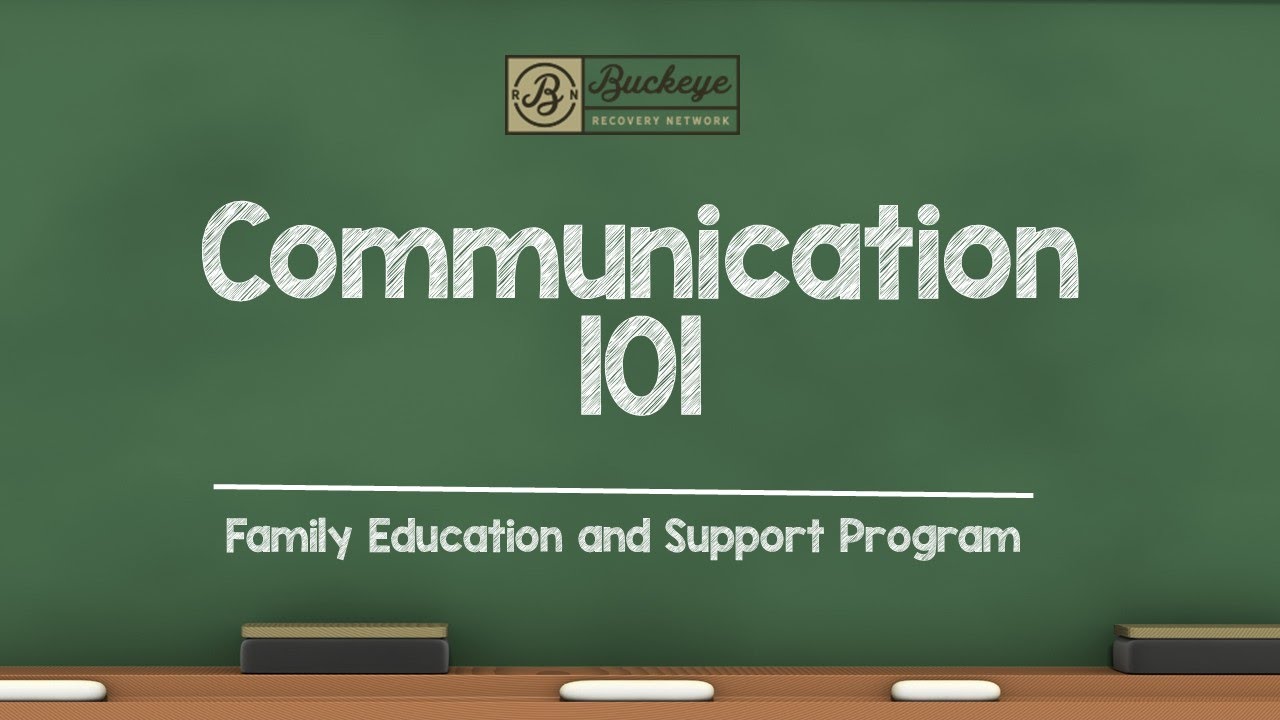When battling addiction, individuals often find themselves engulfed in a cycle of isolation and despair. Communication in addiction recovery stands as a cornerstone in breaking this dangerous cycle and fostering recovery. It’s not just about exchanging words but about creating meaningful connections, reducing isolation, and ultimately reshaping lives. At Mothers Against Addiction, we recognize the pivotal role communication plays and strive to support parents through this challenging journey.
Understanding the Importance of Communication in Addiction Recovery
Communication is far more than just speaking and listening; it’s about expressing thoughts, needs, and emotions. In the context of addiction recovery, it serves several critical functions:
By acknowledging these functions, we can better appreciate why communication in addiction recovery is so essential. Let’s dive deeper into strategies that can make a significant difference.
Strategies for Effective Communication in Recovery
1. Mindful Listening: The Foundation of Support Systems
Mindful listening entails truly hearing and understanding the speaker’s message without interruption or judgment. Programs like Active Listening, utilized at the Betty Ford Clinic, exemplify this approach. Active Listening involves paying full attention, reflecting on what’s said, and responding empathetically, significantly enhancing the therapeutic process.
2. Use of Therapeutic Communication Techniques
Therapists employ various techniques to encourage honesty and openness. For instance, Motivational Interviewing, popularized by psychologist Dr. William R. Miller, focuses on evoking the individual’s personal motivation for change rather than imposing external motivations. This empathetic, partnership-based dialogue can be especially effective for those in recovery.
3. Building Communication Skills Through Support Groups
Support groups like Alcoholics Anonymous (AA) or Narcotics Anonymous (NA) emphasize the power of sharing personal stories. These groups create a safe, non-judgmental environment where individuals can practice and refine their communication skills. Participation in regular meetings encourages individuals to articulate their experiences and challenges, fostering community and reducing feelings of isolation.
4. Incorporating Family Therapy
Recovery is not a solitary journey; it often involves family members. Family therapy, offered by organizations like Hazelden Betty Ford Foundation, enables open dialogue between the recovering individual and their loved ones. This therapeutic setting helps rebuild trust, resolve conflicts, and establish supportive communication patterns crucial for long-term recovery.
5. Utilizing Technology for Communication
In today’s tech-savvy world, technology offers new avenues for maintaining communication. Apps like Sober Grid connect individuals in recovery, providing a platform for sharing experiences and offering support. Virtual therapy, supported by platforms like BetterHelp, makes professional counseling accessible from anywhere, ensuring continuous support.
6. Engaging in Regular Self-Reflection
Self-communication, through practices like journaling, plays a vital role in recovery. Documenting thoughts and feelings helps individuals gain insight into their emotional state and triggers. Programs such as SMART Recovery emphasize the importance of self-reflection as part of their cognitive-behavioral approach, helping individuals develop healthier thinking patterns.
7. The Power of Peer Communication
Peers who share similar experiences provide invaluable support. Organizations such as Faces & Voices of Recovery promote peer mentoring, where individuals in later stages of recovery guide and support those newer to the process. This peer-to-peer communication fosters mutual trust and understanding, reducing isolation and reinforcing the recovery commitment.
| Aspect | Description | Benefits |
| Isolation and Shame | Struggling with addiction often leads to feelings of isolation and shame, which can hinder recovery efforts. | Reduced emotional burden, better mental health, stronger motivation to recover. |
| Open Communication | Sharing your experiences and struggles openly with others to reduce the sense of isolation. | Creates a support network, validates feelings, and reduces the stigma associated with addiction. |
| Being in Touch with Self | Becoming more aware of your emotions and inner state, which is vital for effective communication in recovery. | Better self-awareness, improved emotional regulation, more honest conversations. |
| Expressing Feelings | Learning to communicate feelings and frustrations clearly and constructively to others. | Improved relationships, reduced misunderstandings, and effective conflict resolution. |
| Active Listening | Actively listening to others, which includes paying attention, showing empathy, and providing feedback. | Builds trust, enhances mutual understanding, and strengthens relationships. |
| Honesty and Openness | Being open and honest in communication to build credible relationships and trust. | Fosters transparency, strengthens support systems, and encourages reciprocal honesty. |
| Four C’s of Addiction | – Compulsion: The urge to use substances. – Cravings: The intense desire for the substance. – Consequences: The negative outcomes of use. – Control: The lost or diminished ability to control substance use. |
Identifies problematic behaviors, helps in developing targeted communication strategies for recovery, and aids in understanding triggers. |
| Tip | Action | Benefit |
| Self-Reflection | Spend time reflecting on your feelings and thoughts regularly. | Greater insight into personal triggers and emotional states. |
| Journaling | Keep a journal to articulate and process your emotions. | Enhanced emotional clarity and better communication of feelings. |
| Practice Active Listening | Engage in conversations without interrupting, and reflect back what you’ve heard. | Improved relationships and understanding among peers and family. |
| Role-Play Scenarios | Practice common recovery conversations with a trusted person to prepare for real situations. | Builds confidence and competence in handling difficult topics. |
| Seek Professional Guidance | Work with a counselor or therapist to improve communication skills. | Professional advice tailored to individual needs, structured communication strategies. |
Personal Story: Communication That Transformed a Life
Consider the experience of Jason, a recovering addict now contributing to the Phoenix House. Isolated and heavily addicted, Jason’s turning point came when he began to engage in open, honest conversations at his rehabilitation facility. The empathetic listening and shared experiences within the group therapy sessions helped him break free from isolation. Today, Jason actively participates in group counseling, advocating the power of communication in addiction recovery.
Innovative Perspectives on Communication in Addiction Recovery
While traditional methods of communication remain pivotal, innovative approaches continue to evolve. Virtual reality (VR) therapy, spearheaded by companies like AppliedVR, offers immersive experiences aiding in rebuilding communication skills and emotional resilience. Similarly, AI-driven platforms like Woebot provide real-time conversational support and cognitive-behavioral therapy, enhancing accessibility to communication-based interventions.
Emphasizing communication in recovery isn’t just about talking; it’s about creating connections, fostering understanding, and building a supportive network extending beyond the individual. Effective communication reduces isolation, promotes accountability, and equips individuals with tools to navigate the complex journey of addiction recovery.
Final Thoughts: Connecting Beyond Words
As we continue to explore and expand the role of communication in addiction recovery, it’s essential to recognize that each conversation, whether with oneself or others, has the power to transform lives. By embracing diverse strategies and leveraging both traditional and innovative tools, we can build a world where recovering individuals feel understood, supported, and never alone.
If you’re a parent struggling with your child’s addiction or loss due to addiction, visit Mothers Against addiction for resources and support. Remember, effective communication is one of the key steps in breaking The cycle Of addiction and fostering healing within the family.
Communication in Addiction Recovery
Communication in addiction recovery is a vital component to reducing isolation and fostering a supportive environment for individuals making their way to sobriety. Making meaningful connections can be challenging, but open conversations create a foundation where people feel less alone and more understood.
The Power of Family and Community Support
Family plays a pivotal role in addiction recovery. Engaging in transparent and empathetic communication can mend relationships and promote collective healing. Did you know that families who actively participate in the Family healing From addiction often witness significant improvements in their loved ones’ recovery process? This interaction helps manage stress levels and emotional well-being, nurturing a more positive outlook.
On a different note, isn’t it interesting how community emergencies, such as the California flooding Storms, unite people, sparking spontaneous, supportive communication among strangers? Similarly, communities built around recovery can offer crucial support. This sense of belonging can drastically reduce feelings of solitude that frequently accompany addiction.
Conversations that Heal
The dynamic between a person in recovery and their support network is critical. Simple, honest conversations can work wonders in breaking down walls of isolation. Imagine the unwavering support and love coming from families who engage openly, akin to how even a surprising topic like Teacher Brianna coppage husband ‘s commitment to his wife’s choices strengthens their bond. Genuine support can indeed transform lives, making every conversation a stepping stone to recovery.
Unexpected Benefits of Communication
Interestingly, consistent communication in recovery isn’t much different from maintaining open dialogues about everyday concerns like What are current interest rates. Both require transparency, trust, and mutual understanding. Just as discussing financial planning can relieve economic stress, open talks about recovery journey alleviate the emotional burden, creating a more relaxed environment.
In essence, communication in addiction recovery is a powerful antidote to isolation. Whether it’s talking about daily weather updates, such as on Alum Rock road birmingham, or delving into more profound personal matters, the connection created through dialogue is incomparable. So, next time you engage in a conversation, remember its potential impact on someone’s recovery journey.

What is the importance of communication in recovery?
Communication plays a crucial role in recovery because it helps break down feelings of isolation and shame. By sharing your experiences and being open with others, you realize you’re not alone in your struggles, which makes the recovery process less daunting.
How to communicate with a recovering addict?
When talking with a recovering addict, it’s essential to be patient, non-judgmental, and supportive. Listen actively, validate their feelings, and offer encouragement. Avoid criticism or trying to fix their problems; just being there can make a huge difference.
What is effective communication in sobriety?
Effective communication in sobriety involves being honest and open about your feelings and experiences. It means listening to others and expressing your needs and frustrations clearly and calmly. Being in touch with your emotions and sharing them helps build trust and understanding.
What are the 4 C’s in recovery?
The four C’s in recovery are compulsion, cravings, consequences, and control. Compulsion means feeling a strong urge to use substances; cravings are the intense desire for them; consequences refer to the negative effects of usage; and control reflects the struggle to manage usage.
Why is communication important in treatment?
Communication in treatment is important because it allows individuals to express their feelings, needs, and progress. It helps build trust between the person in recovery and their support system, and it also provides a platform for guidance, feedback, and mutual understanding.
Why is connection important in recovery?
Connection is vital in recovery as it helps individuals feel supported and understood. Relationships with family, friends, and support groups can provide encouragement, reduce feelings of loneliness, and offer a sense of belonging that is critical for maintaining sobriety.
What are the three P’s in addiction recovery?
The three P’s in addiction recovery are patience, perseverance, and positivity. Patience with the process, perseverance through challenges, and maintaining a positive outlook can help individuals navigate the ups and downs of recovery.
What are the five rules of addiction recovery?
The five rules of addiction recovery include accepting you have a problem, seeking help, making lifestyle changes, developing coping skills, and building a support network. These steps provide a foundation for overcoming addiction and fostering long-term sobriety.
What are the 7 tips of recovery if you are an addict?
The 7 tips for recovery if you are an addict include setting clear goals, finding a support network, attending therapy or meetings, avoiding triggers, practicing self-care, developing new hobbies, and staying patient with yourself. These tips help create a structured and supportive environment for recovery.
What are the 5 C’s of therapeutic communication?
The 5 C’s of therapeutic communication are clarity, coherence, conciseness, concreteness, and consistency. These elements ensure that communication is clear, understandable, to the point, specific, and reliable, which helps foster effective and meaningful interactions.
What are the 4 pillars of sobriety?
The four pillars of sobriety are health, home, purpose, and community. Focusing on overall well-being, creating a stable living environment, finding meaningful activities, and building strong social connections support sustained recovery.
What are the three pillars of sobriety?
The three pillars of sobriety are health, relationships, and purpose. Maintaining physical and mental health, nurturing relationships, and finding a sense of purpose guide individuals in their journey to long-term sobriety.
What are the 7 R’s of recovery?
The 7 R’s of recovery include recognition, responsibility, resilience, relationships, routines, reflection, and respect. These principles help individuals navigate the recovery process by recognizing challenges, taking responsibility, building resilience, fostering relationships, establishing routines, reflecting on progress, and respecting oneself and others.
What are the 3 A’s of recovery?
The 3 A’s of recovery are awareness, acceptance, and action. Being aware of the problem, accepting the need for change, and taking actionable steps are critical components of a successful recovery journey.
What are the 4 P’s of recovery?
The 4 P’s of recovery include prepare, practice, participate, and persevere. Preparing for changes, practicing new skills, actively participating in recovery activities, and persevering through challenges are essential for long-term success.
Why is communication important in patient care?
Communication is important in patient care because it helps ensure that patients’ needs, concerns, and preferences are understood and addressed. Effective communication builds trust, improves patient outcomes, and enhances overall satisfaction with care.
Why is language important in recovery?
Language plays a crucial role in recovery as it shapes how individuals express their feelings, understand their experiences, and connect with others. Positive and affirming language can encourage progress, while negative or stigmatizing language can hinder recovery efforts.
What is the importance of communication in survival?
In survival situations, communication is vital for coordinating efforts, sharing information, and providing emotional support. Clear and effective communication can help ensure that everyone is on the same page and working towards common goals.
Why is communication important in overcoming life challenges?
Communication is important in overcoming life challenges because it allows individuals to express their thoughts and feelings, seek support, and find solutions. Open and honest communication can help build understanding, reduce stress, and foster resilience.




























